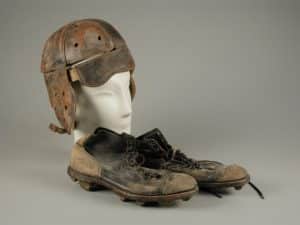 Few people today know that Rochester, New York, was once home to a football team that became part of the American Professional Football Association (APFA), eventually known as the National Football League. The story starts in the early years of the 20th century when the Rochester Jeffersons took their name from their practice field’s location on Jefferson Avenue. The Jeffersons enjoyed about 10 years of competition with other small-town teams and provided plenty of entertainment for Rochester’s avid sports fans. They won national notoriety, however, by losing in 1917 to the Canton Bulldogs, the best team at the time, known for its star player, Jim Thorpe.
Few people today know that Rochester, New York, was once home to a football team that became part of the American Professional Football Association (APFA), eventually known as the National Football League. The story starts in the early years of the 20th century when the Rochester Jeffersons took their name from their practice field’s location on Jefferson Avenue. The Jeffersons enjoyed about 10 years of competition with other small-town teams and provided plenty of entertainment for Rochester’s avid sports fans. They won national notoriety, however, by losing in 1917 to the Canton Bulldogs, the best team at the time, known for its star player, Jim Thorpe.
That defeat had a payoff. When the APFA incorporated in 1920, it invited Rochester’s “Jeffs” to participate in the league because the team’s manager had the audacity to challenge the unstoppable Bulldogs. But that probably didn’t make the most auspicious beginning for a professional football club! Much better suited for local “sandlot football” or small-town rivalries, the Jeffersons found themselves literally playing out of their league. They won only two games during their five years at the pro level, both in 1921. And both the opposing teams for those two wins had reputations for being consistently bad. Nearly bankrupt, the Jeffersons disbanded in 1925.
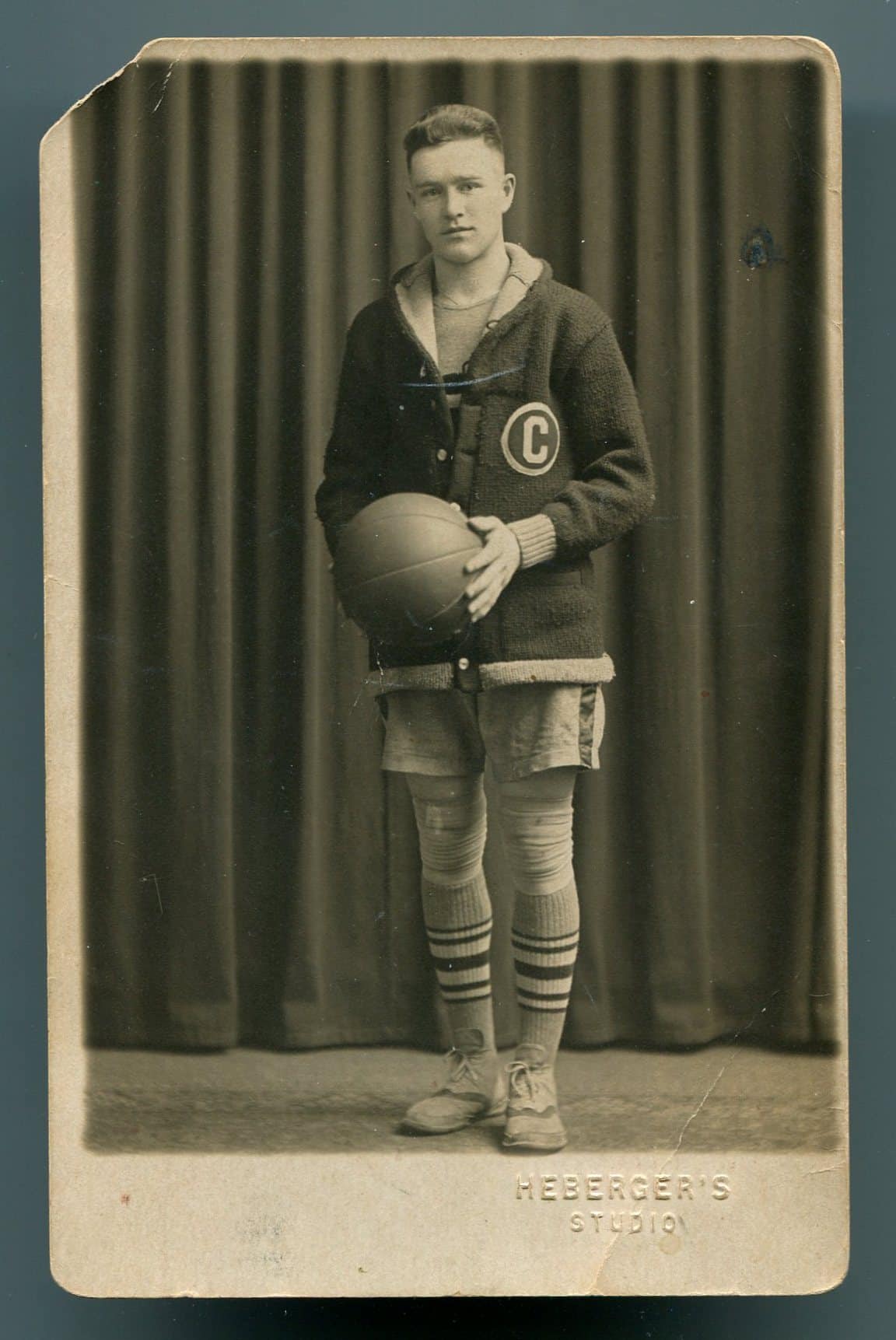 But even though the Jeffersons didn’t find enduring football glory, at least one of their players demonstrated persistence and passion for playing sports of all sorts. According to documentation in the collection of the National Museum of Play at The Strong, Harold R. “Butch” Clark loved playing the game, win or lose. Clark’s amateur athletic career began when he attended Rochester’s Cathedral High School (later the Aquinas Institute) during the early 1900s and played for the Cathedral’s baseball, basketball, and football teams. During World War I, he joined the marines and served in Europe, returning in 1917. Recruited by the Jeffersons football team, he proved one of its top players. Yet in spite of Clark’s athletic ability, the Jeffs lost game after game at the pro level.
But even though the Jeffersons didn’t find enduring football glory, at least one of their players demonstrated persistence and passion for playing sports of all sorts. According to documentation in the collection of the National Museum of Play at The Strong, Harold R. “Butch” Clark loved playing the game, win or lose. Clark’s amateur athletic career began when he attended Rochester’s Cathedral High School (later the Aquinas Institute) during the early 1900s and played for the Cathedral’s baseball, basketball, and football teams. During World War I, he joined the marines and served in Europe, returning in 1917. Recruited by the Jeffersons football team, he proved one of its top players. Yet in spite of Clark’s athletic ability, the Jeffs lost game after game at the pro level.
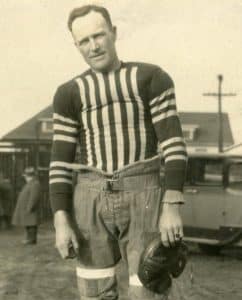 Undaunted, Clark next joined the Oxfords, a smaller city-oriented football team. He also played semi-professional baseball for a local Knights of Columbus team and also for Rochester’s city baseball team, the Orange Blossoms, around 1917. And not forgetting his love for basketball, he played for a Bausch & Lomb sponsored basketball team, the Balcos.
Undaunted, Clark next joined the Oxfords, a smaller city-oriented football team. He also played semi-professional baseball for a local Knights of Columbus team and also for Rochester’s city baseball team, the Orange Blossoms, around 1917. And not forgetting his love for basketball, he played for a Bausch & Lomb sponsored basketball team, the Balcos.
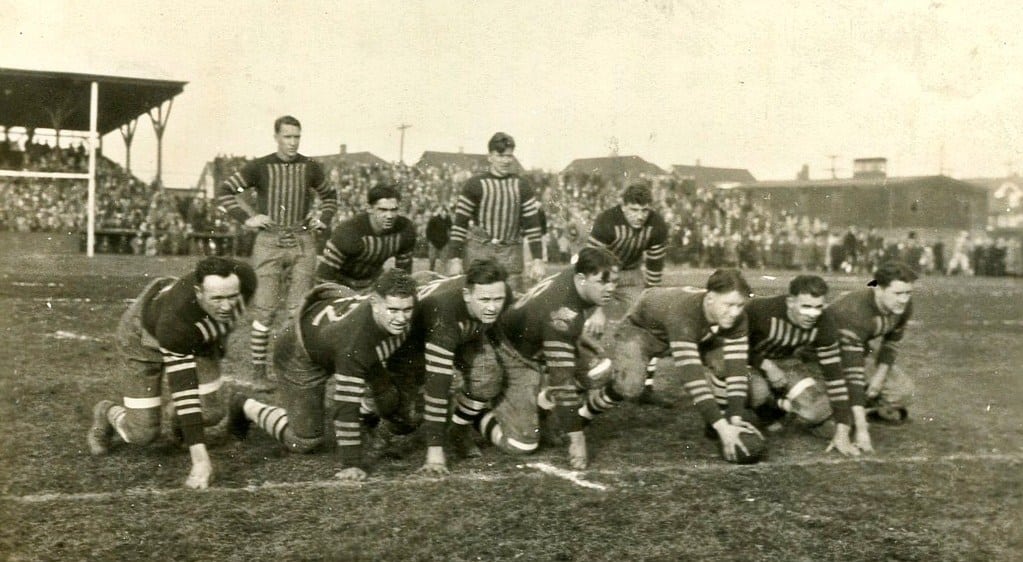
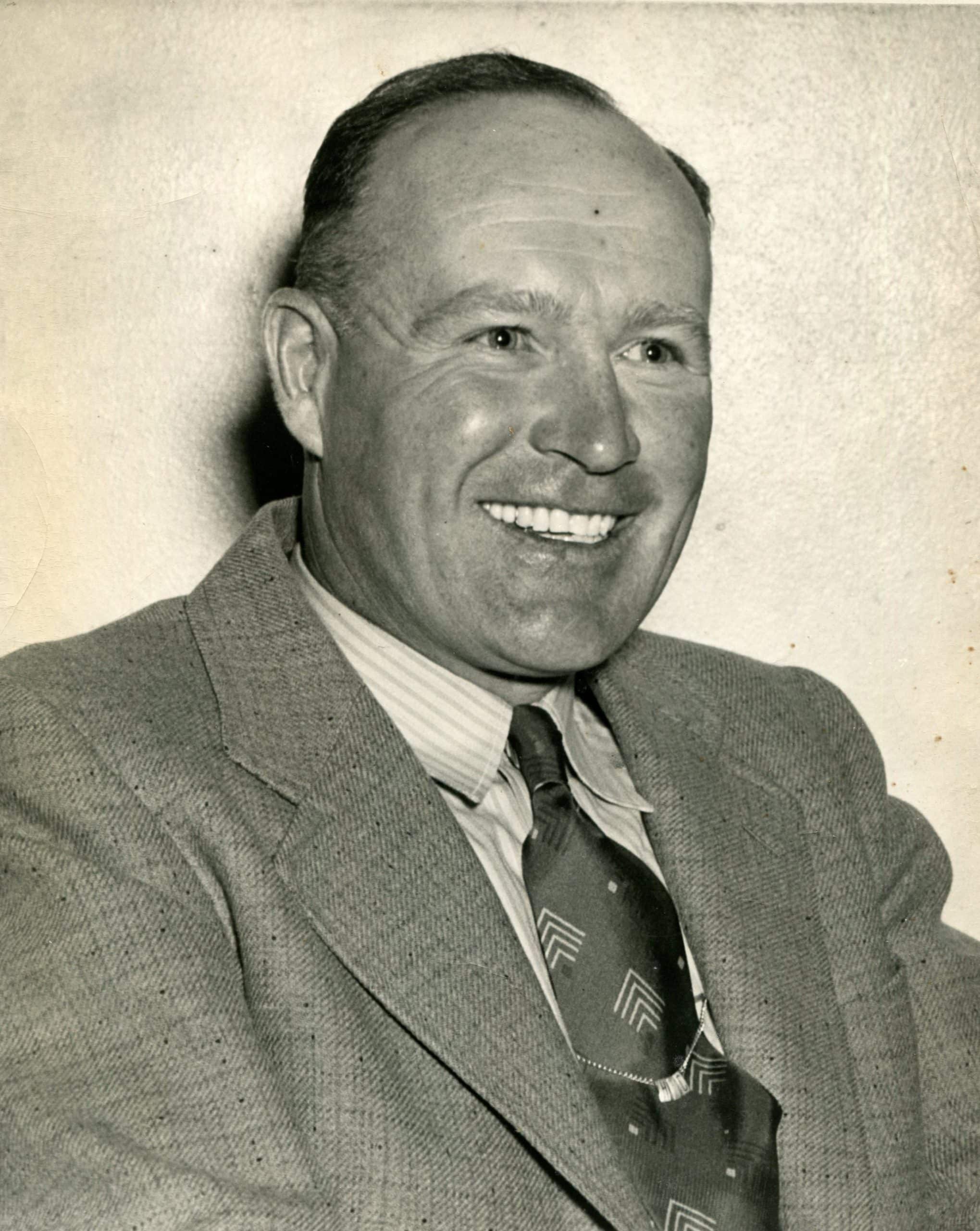 Clark’s love for playing and his contributions to sports in Rochester did not go unnoticed. The sports community honored him later in his lifetime with a special awards banquet, a one-time event just for him. And his family saved his trophies, newspaper clippings, and team photographs, eventually donating some to The Strong. These artifacts help tell the story of a young man’s love for sports and his continued participation as an adult. The gift not only helps preserve the achievements of a great Rochester athlete, but also perhaps to recharge the region’s historical memory of an era when Rochester really could have been a contender!
Clark’s love for playing and his contributions to sports in Rochester did not go unnoticed. The sports community honored him later in his lifetime with a special awards banquet, a one-time event just for him. And his family saved his trophies, newspaper clippings, and team photographs, eventually donating some to The Strong. These artifacts help tell the story of a young man’s love for sports and his continued participation as an adult. The gift not only helps preserve the achievements of a great Rochester athlete, but also perhaps to recharge the region’s historical memory of an era when Rochester really could have been a contender!
 Hours 10 a.m.–5 p.m. | Fri. & Sat. till 8 p.m.
Hours 10 a.m.–5 p.m. | Fri. & Sat. till 8 p.m.